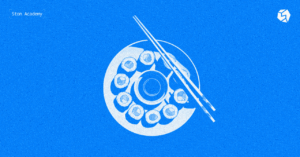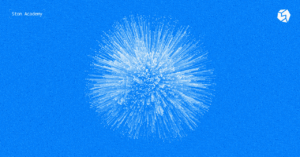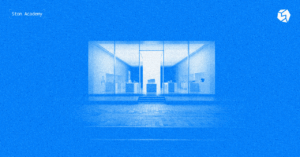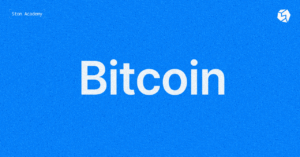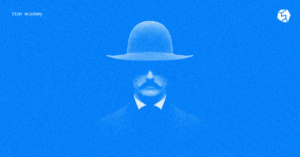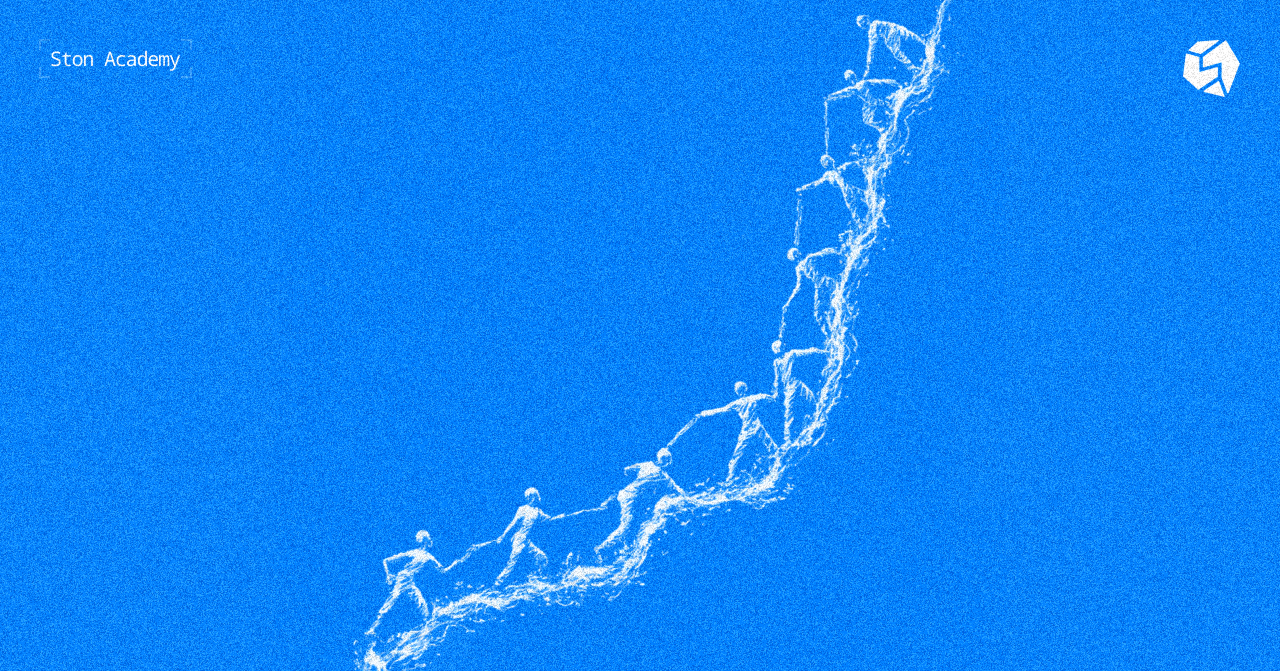
In traditional businesses, decisions are made behind closed doors — executives set the rules, and customers follow them. DeFi flips that model on its head with Decentralized Autonomous Organizations (DAOs), where governance is handed over to the users.
Instead of relying on a boardroom, DAOs let the community propose and vote on changes. Smart contracts then execute these decisions on the blockchain, ensuring everything is transparent and efficient.
In this article, we address what DAOs are, why they are important, and which projects are determining the decentralized future of governance.
What is a DAO and why does it matter in DeFi?
A Decentralized Autonomous Organization (DAO) is a blockchain-based governance structure where decisions are made collectively rather than dictated by a central authority.
🔹 Main features of DAOs:
- Decentralization. No single entity controls the organization.
- Transparency. All actions are recorded on the blockchain.
- Autonomy. Smart contracts execute decisions without intermediaries.
- Community involvement. Voting for the project’s future is done by users holding governance tokens.
DAOs are widely used in DeFi to manage liquidity, propose upgrades, distribute rewards, and foster collaboration.
The story behind the first DAO
In 2016, the concept of Decentralized Autonomous Organizations (DAOs) gained significant attention with the launch of The DAO, a decentralized venture fund built on the Ethereum blockchain.
📌 The DAO incident
- The DAO successfully raised over $150 million in Ethereum (ETH), marking it as a major achievement in crowdfunding.
- However, a vulnerability in its smart contract led to a $50 million hack, sparking a crisis.
- This incident caused a rift in the Ethereum community, resulting in the creation of two separate cryptocurrencies: Ethereum (ETH) and Ethereum Classic (ETC).
Despite its failure, The DAO underscored the importance of strong security, governance frameworks, and well-designed smart contracts in the blockchain sector.
Different types of DAOs
DAOs serve multiple purposes and take different forms:
🔹 Protocol DAOs. These govern decentralized finance (DeFi) platforms, including Uniswap, Aave, and MakerDAO.
🔹 Investment DAOs. These pool resources for investment opportunities, such as The LAO and MetaCartel Ventures.
🔹 Collector DAOs. These focus on managing and acquiring NFTs, with PleasrDAO being a key example.
🔹 Social DAOs. These build community-driven networks, like Friends with Benefits.
🔹 Service DAOs. These offer services within the Web3 ecosystem, such as Raid Guild.
🔹 Grant DAOs. These finance open-source development projects, as seen with Gitcoin Grants.
💡 STON.fi DAO is in its initial stage, still it fits into the Protocol DAO category, as it governs the STON.fi decentralized exchange (DEX) on the TON blockchain.
Why do DAOs matter?
DAOs are transforming decision-making by transferring control from corporations to communities. They offer:
✔ Transparency. Every action is recorded on-chain for public verification.
✔ Community decision-making. Token holders actively shape a project’s future.
✔ Incentives for participation. Users benefit from the success of the projects they govern.
✔ Flexibility. Changes happen without layers of bureaucracy.
For businesses, DAOs offer:
- Swift decision-making through agile governance.
- Enhanced trust through transparent processes.
- Growth driven by active community participation.
The most influential DAOs in DeFi
Some DAOs control billions of dollars and dictate the direction of major DeFi protocols:
- Uniswap DAO governs the largest decentralized exchange.
- MakerDAO manages the DAI stablecoin.
- Aave DAO oversees one of the biggest lending platforms.
- Lido DAO regulates liquid staking solutions.
- Curve DAO directs liquidity incentives and yield strategies.
- Gitcoin DAO funds open-source projects in Web3.
- Jupiter DAO plays a key role in the Solana ecosystem, managing the leading liquidity aggregator.
💡 Want to keep track of DAOs? Snapshot.box is a DAO aggregator that compiles governance proposals, voting results, and participation data from various DAOs across multiple ecosystems.
Wrapping up
DAOs are reshaping governance in DeFi, NFTs, and Web3 communities, empowering users and facilitating transparent, democratic decision-making.
As they continue to develop, DAOs may become the standard for managing decentralized projects, potentially replacing traditional corporate structures.
